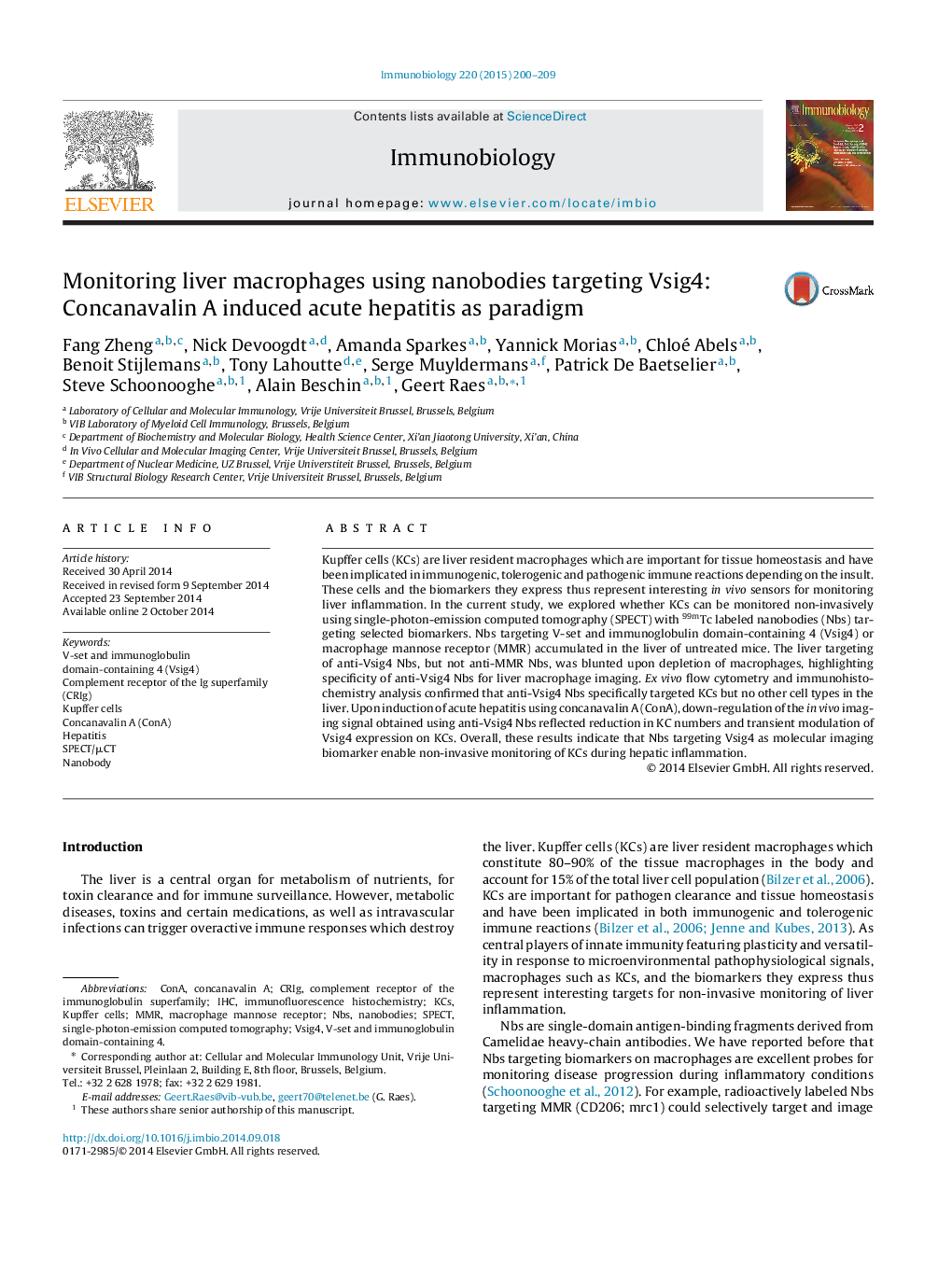| Article ID | Journal | Published Year | Pages | File Type |
|---|---|---|---|---|
| 10940977 | Immunobiology | 2015 | 10 Pages |
Abstract
Kupffer cells (KCs) are liver resident macrophages which are important for tissue homeostasis and have been implicated in immunogenic, tolerogenic and pathogenic immune reactions depending on the insult. These cells and the biomarkers they express thus represent interesting in vivo sensors for monitoring liver inflammation. In the current study, we explored whether KCs can be monitored non-invasively using single-photon-emission computed tomography (SPECT) with 99mTc labeled nanobodies (Nbs) targeting selected biomarkers. Nbs targeting V-set and immunoglobulin domain-containing 4 (Vsig4) or macrophage mannose receptor (MMR) accumulated in the liver of untreated mice. The liver targeting of anti-Vsig4 Nbs, but not anti-MMR Nbs, was blunted upon depletion of macrophages, highlighting specificity of anti-Vsig4 Nbs for liver macrophage imaging. Ex vivo flow cytometry and immunohistochemistry analysis confirmed that anti-Vsig4 Nbs specifically targeted KCs but no other cell types in the liver. Upon induction of acute hepatitis using concanavalin A (ConA), down-regulation of the in vivo imaging signal obtained using anti-Vsig4 Nbs reflected reduction in KC numbers and transient modulation of Vsig4 expression on KCs. Overall, these results indicate that Nbs targeting Vsig4 as molecular imaging biomarker enable non-invasive monitoring of KCs during hepatic inflammation.
Keywords
Related Topics
Life Sciences
Biochemistry, Genetics and Molecular Biology
Cell Biology
Authors
Fang Zheng, Nick Devoogdt, Amanda Sparkes, Yannick Morias, Chloé Abels, Benoit Stijlemans, Tony Lahoutte, Serge Muyldermans, Patrick De Baetselier, Steve Schoonooghe, Alain Beschin, Geert Raes,
